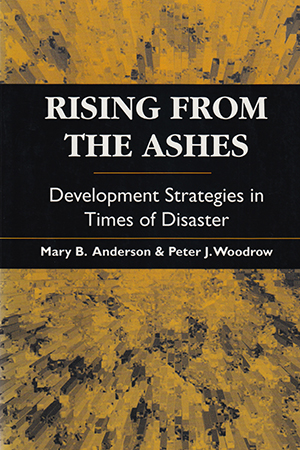Mary B. Anderson and Peter J. Woodrow
Drawing on case histories of emergency relief programs that have successfully promoted development, Anderson and Woodrow offer guidelines for fashioning assistance programs designed to counter the effects of both natural and human-caused disasters. Arguing that relief efforts must support and enhance existing capacities, they present an analytical framework for assessing the characteristics and needs of afflicted communities.
Mary B. Anderson, a development economist, is president of the Collaborative for Development Action, a consulting firm in Cambridge, Massachusetts. Peter J. Woodrow is program director of CDR Associates, a mediation, facilitation, consulting, and training organization based in Boulder, Colorado.
No rights in Europe."A relevant and valuable work of reference for those familiar with the field, and essential reading for a new generation of NGO workers engaged in humanitarian assistance."—Bridget Walker, Development in Practice
"A welcome addition to our limited knowledge of ways and means by which the international community can help mobilize peoples and societies to cope with disasters, to recover, and to develop their capacities to link short-term emergency assistance with long-term human and natural resource development."—Federico Mayor, UNESCO
"This book should be required reading for any NGO staff person working either in disaster or development projects. It gives us the sobering reminder that [development can come only from within people and societies], and it gives practical advice on how to support indigenous development through outside aid." —Peter J. Davies, InterAction






